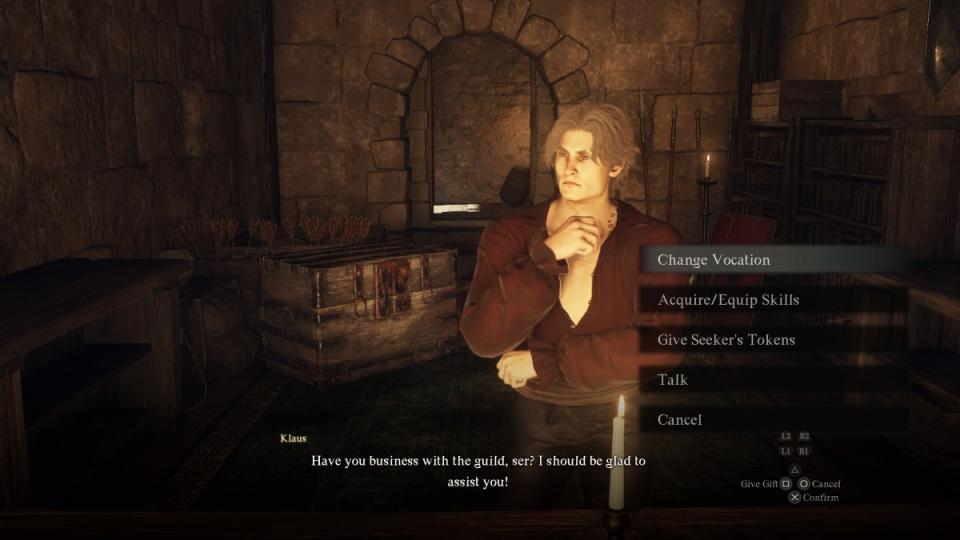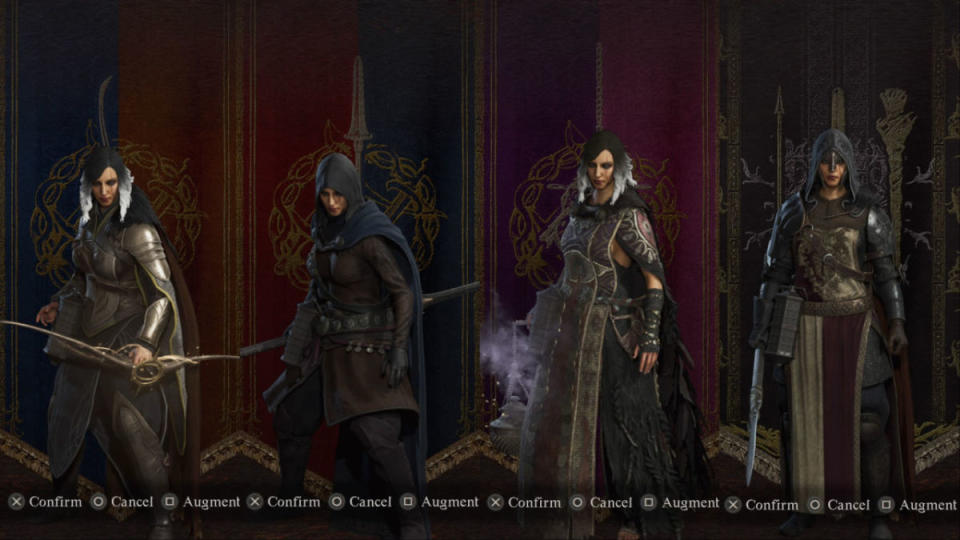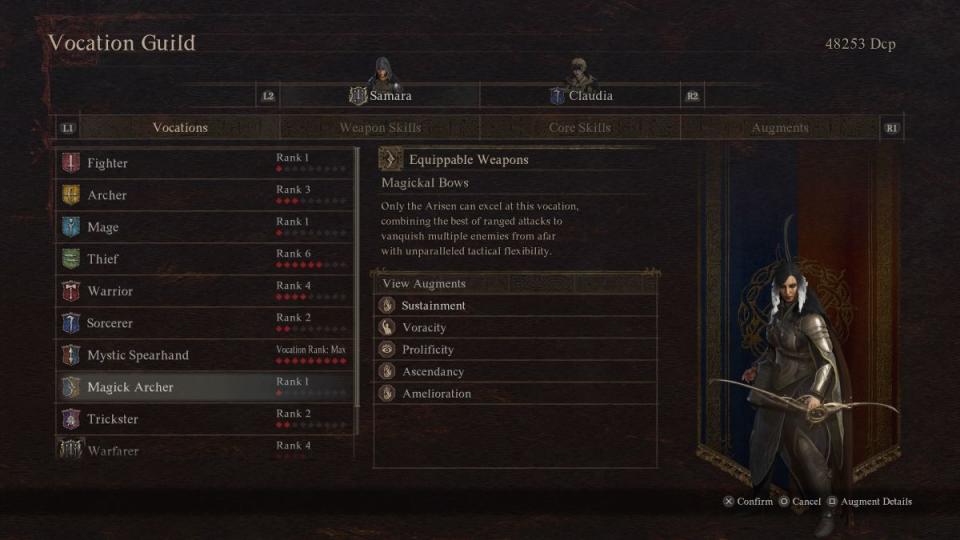Dragon’s Dogma 2: Best Starting Vocation for Arisen and Main Pawn

dragons-dogma-2-sephiroth-2-pawn
Dragon’s Dogma 2 starts out with four vocations – called classes or jobs in most RPGs – to choose from, and each is surprisingly versatile and useful. Unlike most games where classes only show their uses after hours of leveling up skill trees, maxing out a vocation in DD2 can take about ten hours, and offers passive buffs that apply to any vocation you pick after that point. Pretty nifty, and changing vocations is easy too.
Thanks to this flexibility there are no wrong choices when picking your Dragon’s Dogma 2 vocation, but if you want to know which class will give you the best leg up for your Arisen and main Pawn, then we have the information you need. We’ve gone into detail about the abilities of the starting vocations, and why you need them in your party below. Once you unlock new vocations, you’ll know everything you need to make your own party compositions.
Every Dragon’s Dogma 2 Starting Vocation

Capcom, GLHF
There are four primary classes to start with in Dragon’s Dogma 2, and each comes with its own unique advantages and disadvantages. You will unlock more vocations later, but this is what you start with.
Fighter
Archer
Mage
Thief
The Fighter comes with a shield and has the most health and defense of the starting quartet, but the Thief has a proper dodge, which could be better for your playstyle. Meanwhile, the Archer is surprisingly great at ranged damage dealing, and the Mage is the only vocation that is properly equipped to heal your party across the game, making them a near-essential companion.
Luckily you can change your vocation very easily after starting the game, and you will also have two extra pawn companions, which can take up roles you don’t want to use with your primary two characters, like Mage.
Best Main Character Starting Vocation – DD2

Capcom, GLHF
Your main character’s vocation should be decided based solely on your playstyle. If you prefer melee strikes, then you will naturally gravitate towards either Fighter or Thief – then it’s a question of whether you’d like to dodge big attacks, or deflect and parry them. Fighter has the shield for close-quarters blocks, while only the Thief can swiftly dodge enemy strikes.
If you don’t want to use a melee build, then Archer and Mage are your options. Both can have good damage output, but the Mage is the less mobile of the two, requiring some time stood still to cast spells, while the Archer can loose arrows on the move, and even has a few melee strikes.
In the long term, the Thief is a powerful class that can deal huge amounts of damage even against end-game monsters and bosses, and Mage remains the best vocation for healing. Archer and Fighter, however, are mostly superseded by the later Magick Archer and Warrior vocations.
If you want the best and most powerful starting class for long-term viability, Thief is your best bet.
Related: Dragon’s Dogma 2: How To Unlock the Magick Archer Vocation
Best Pawn Starting Vocation – DD2

Capcom, GLHF
Your pawn is your faithful subject, and levels up in exactly the same way you do. You can pick the exact same vocation for your pawn as yourself, doubling up on damage output, or you can assign them to other roles. For example, if you decide to focus on ranged combat, having a pawn that can draw enemy aggro is useful, and the Fighter is best for this.
If you love being the target of your enemies in the fray, then having your pawn take up a Mage role will help more. Again, you will be able to hire two extra pawns from Riftstones and meetings on the road, so you can always have those roles filled by extra companions, instead of dedicating your pawn to a specific role.
Whether you’d rather your pawn to do damage, assist, or take aggro, there’s a great vocation for each of these in the starting line-up, and each leveled vocation rewards you with passive buffs that carry over even when you change your vocation. This means there really isn’t a wrong answer here, but there is a right answer if you want great synergy with your pawn, so here are our recommendations.
If Arisen is Fighter, Pawn should be Mage
If Arisen is Archer, Pawn should be Thief
If Arisen is Mage, Pawn should be Fighter
If Arisen is Thief, Pawn should be Archer
I’ve done my best to spread things out here – and again, your extra two pawn hires can fill in the gaps – but this is a very good indicator of what you should be aiming for. Each of these roles fills in a weakness that your Arisen’s role has. If you’re taking damage and holding the line as a Fighter, a Mage to heal you will be invaluable. If you’re focusing on damage with a Thief, then an Archer will make for great backup, and so on. While moving through the game for the first time, you need to be prepared for anything, and that’s why having a varied party will always be beneficial.
